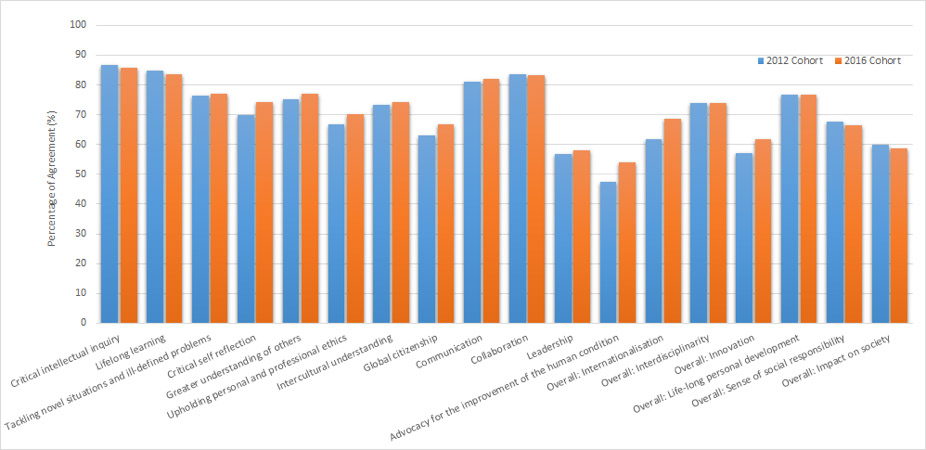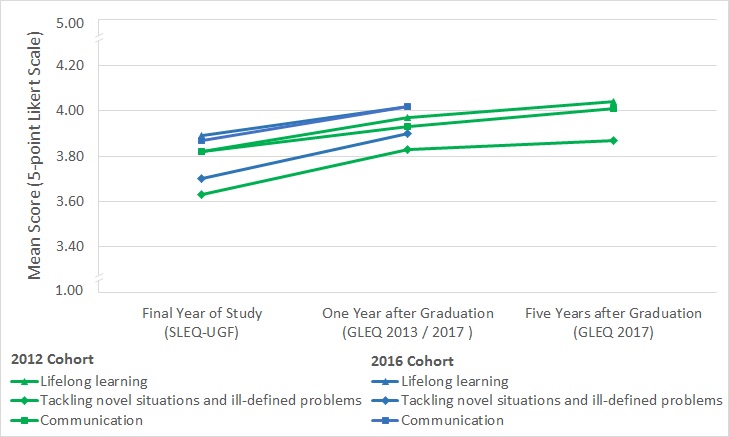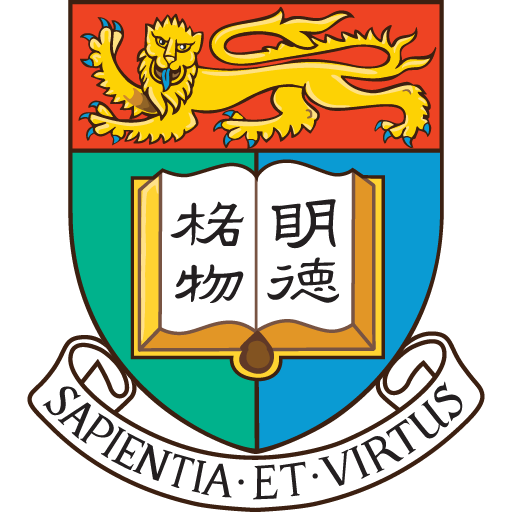2023
Highlights
- Over half of the respondents agreed or strongly agreed with all aspects of their perceived attainment of the University Educational Aims. Notably, more than 89% of graduates from both cohorts responded positively regarding their attainment in Pursuit of academic / professional excellence, critical intellectual inquiry and life-long learning and Communication and collaboration (Figure 1).
- Longitudinal tracking of respondents who completed the student learning experience surveys both during and after their University studies indicated that the perceived attainment of the University Education Aims — Pursuit of academic / professional excellence, critical intellectual inquiry and life-long learning, Tackling novel situations and ill-defined problems, and Communication and collaboration — continued to increase after graduation (Figure 2).
- Three key themes emerged from respondents’ perceptions of the most valuable aspects of their University learning experience, including the concepts related to “interpersonal, communication, and skills”, “different, cultural, and backgrounds”, and “professional, and knowledge” (Figure 3).
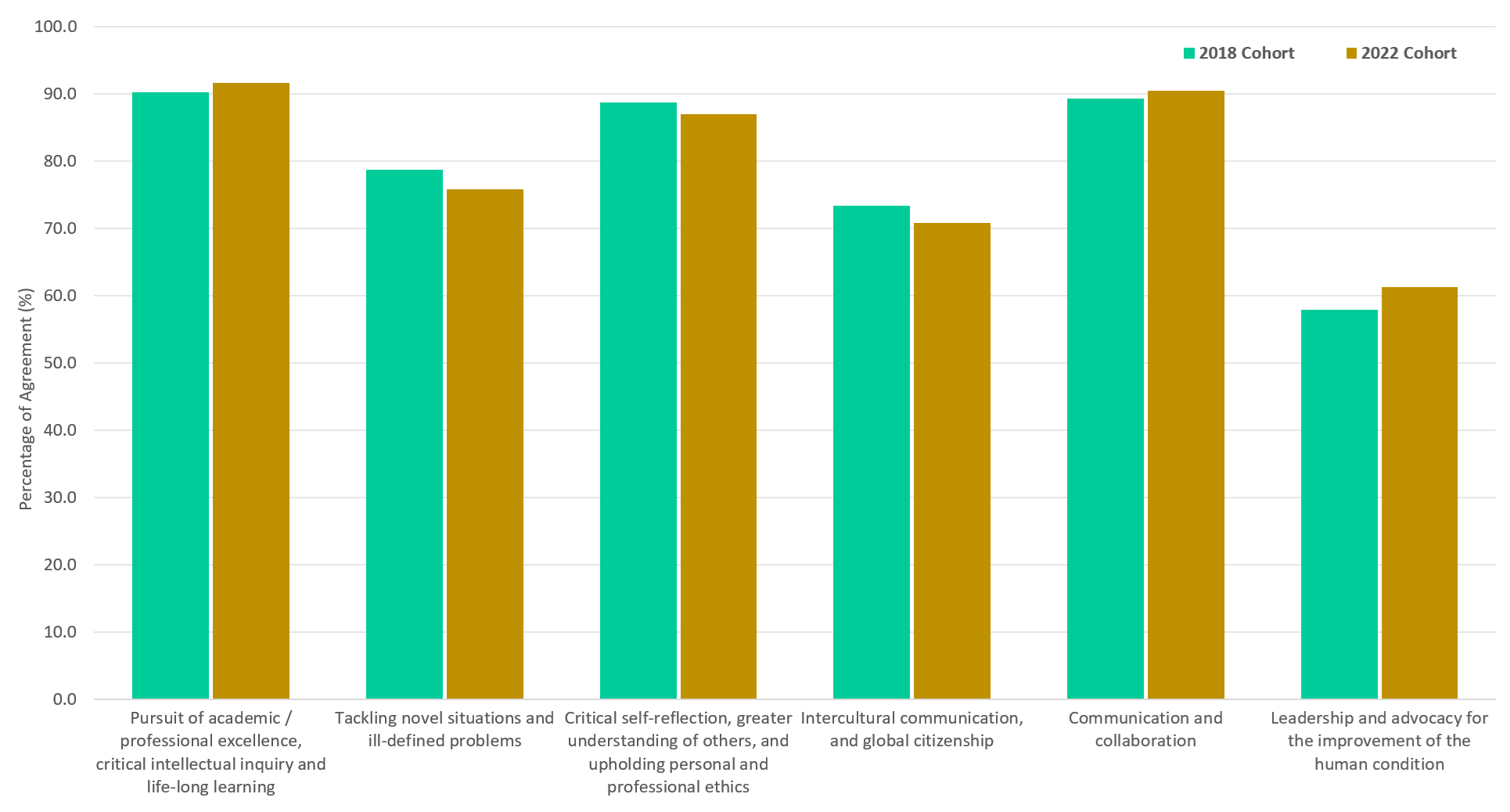

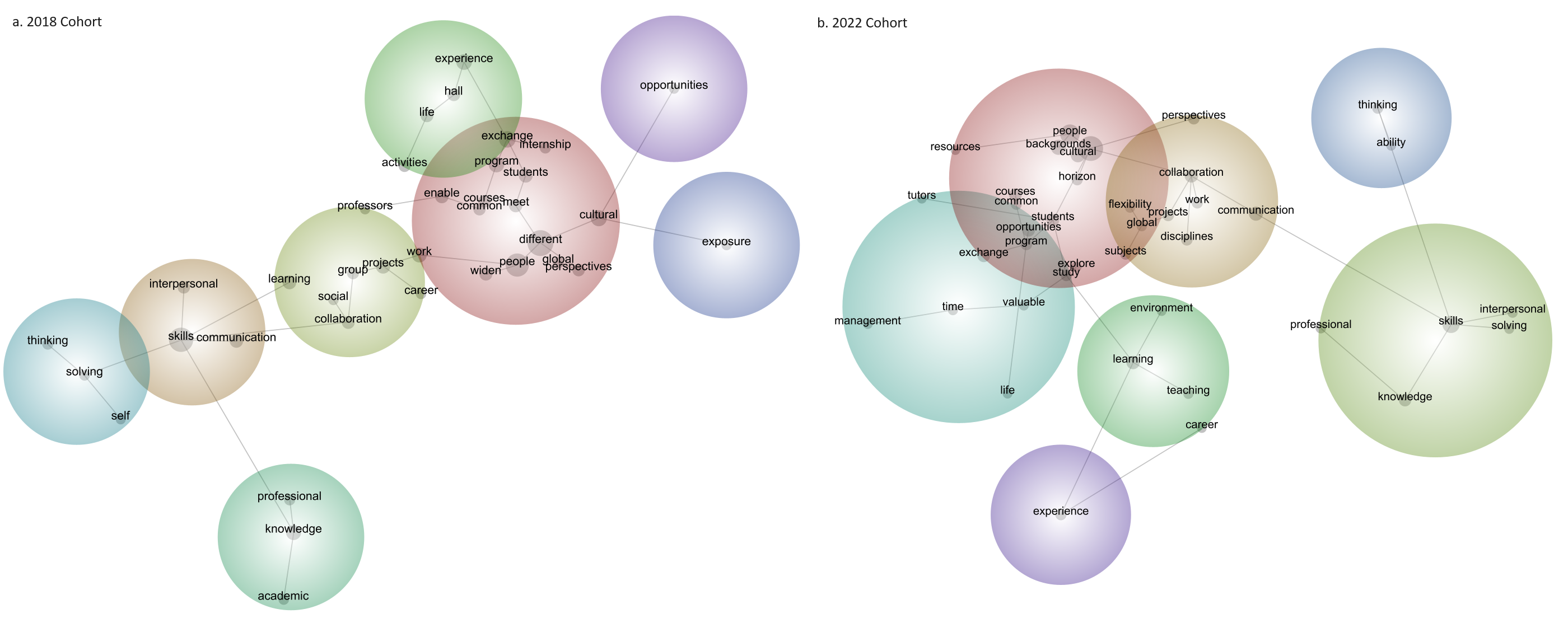

2021
Highlights
- More than half of the respondents agreed or strongly agreed on most aspects of their perceived attainment of University Educational Aims. Remaining consistent with the previous administrations, graduates of both cohorts felt most confident about attaining the competencies of Critical Intellectual Inquiry, followed by Lifelong Learning, Communication and Collaboration (Figure 1).
- For the same cohort of students who completed the student learning experience surveys during and after university studies, results from the longitudinal tracking evidenced gains in the aspects of Tackling Novel Situations and Ill-defined Problems and Communication. The upward trajectory was sustained over time for the 2016 cohort who was surveyed one year and then 5 years after graduation (Figure 2).
- When reflecting on the university learning experience, many graduates found “communication”, “collaboration”, “knowledge” and “perspective” gained at HKU the most valuable (see sample quotes from the open-ended comments in Figure 3).
Detailed results at the institutional, Faculty and curriculum levels are available at the online Institutional Survey Reports System (ISRS). This System enables Faculties to dynamically generate survey reports at various levels and make comparisons across administration years. All academic staff and administrative staff with access rights granted can directly access the System after logging on to the HKU Portal account (HKU Portal > Self Service > Teaching and Learning > Institutional Survey Reports > View Reports). Detailed instructions on using the System are available in the User Manual, downloadable from here.
Faculties are welcome to contact Dr. Maggie Zhao at myzhao@hku.hk for support in interpreting and utilising survey data, and Ms. Yvonne Chan at chanyyw@hku.hk for technical support in using the System.
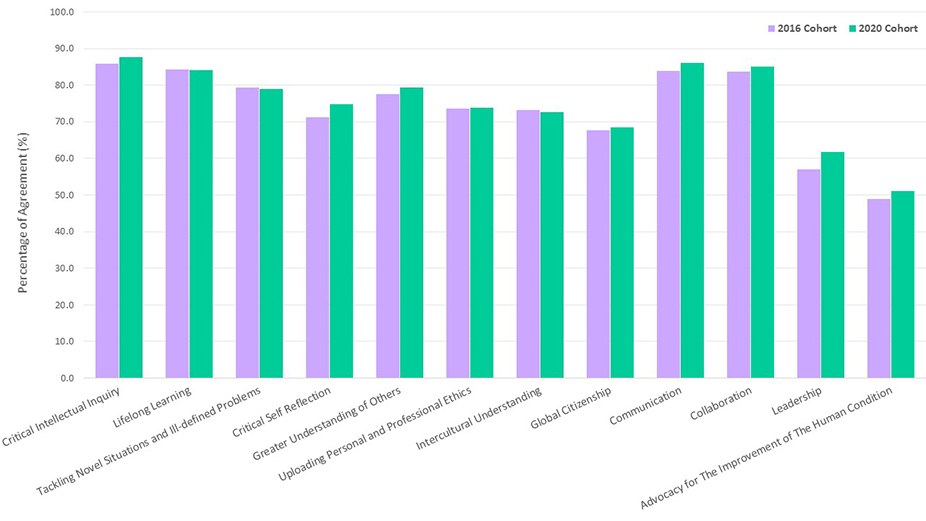
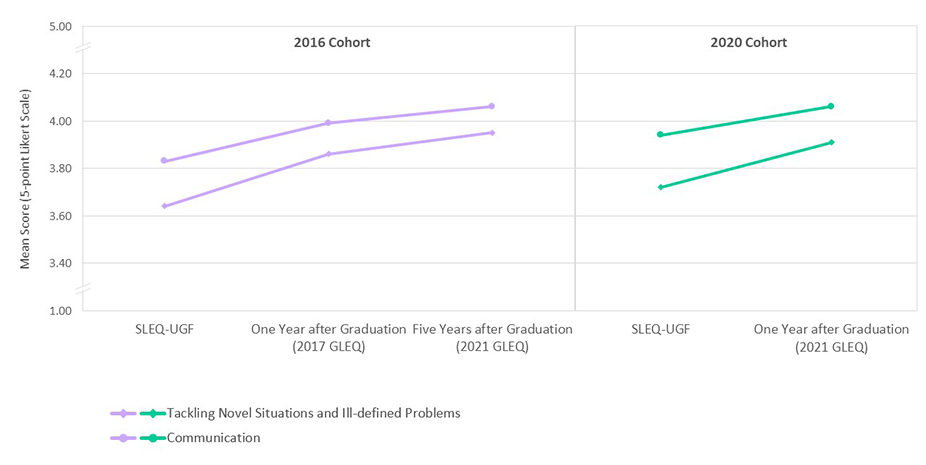
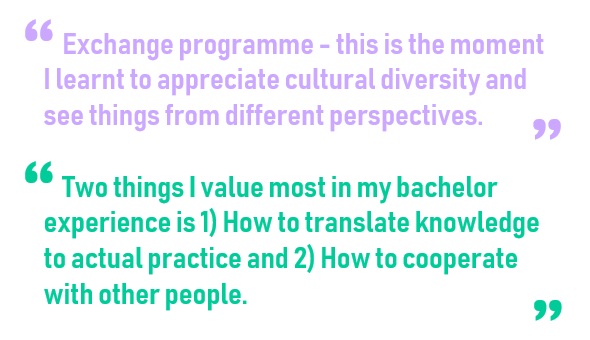
2019
Highlights
- Regarding perceived achievement of HKU Educational Aims, more than half of the respondents agreed or strongly agreed on all aspects. The three highest agreement percentages appeared on the scales of Critical Intellectual Inquiry, Lifelong Learning and Collaboration (Figure 1).
- In the longitudinal tracking of the same cohort of students who completed the student learning experience surveys over time, graduates of both cohorts reported gains after graduation on the aspects of Critical Intellectual Inquiry, Lifelong Learning, Tackling Novel Situations and Ill-defined Problems and Communication. Notably, an upward trajectory sustained over time on Communication from the 2014 cohort who was surveyed one year and then 5 years after graduation. (Figure 2).
- When it comes to HKU learning experience that is the most valuable to the current work or life, graduates frequently commented on well-equipped academic / professional knowledge and skills, enhanced personal developments such as communication and collaboration skills as well as intercultural understanding, and appreciated rich opportunities to gain international learning experience (Figure 3).
Detailed results at the institutional, Faculty and curriculum levels are available at the online Institutional Survey Reports System (ISRS). This System enables Faculties to dynamically generate survey reports at various levels and make comparisons across administration years. All academic staff and administrative staff with access right granted can directly access the System after logging on to the HKU Portal account (HKU Portal > Self Service > Teaching and Learning > Institutional Survey Reports > View Reports). Detailed instructions on using the System are available in the User Manual, downloadable from here.
Faculties are welcome to contact Dr. Maggie Zhao at myzhao@hku.hk for support in interpreting and utilising survey data, and Ms. Yvonne Chan at chanyyw@hku.hk for technical support in using the System.
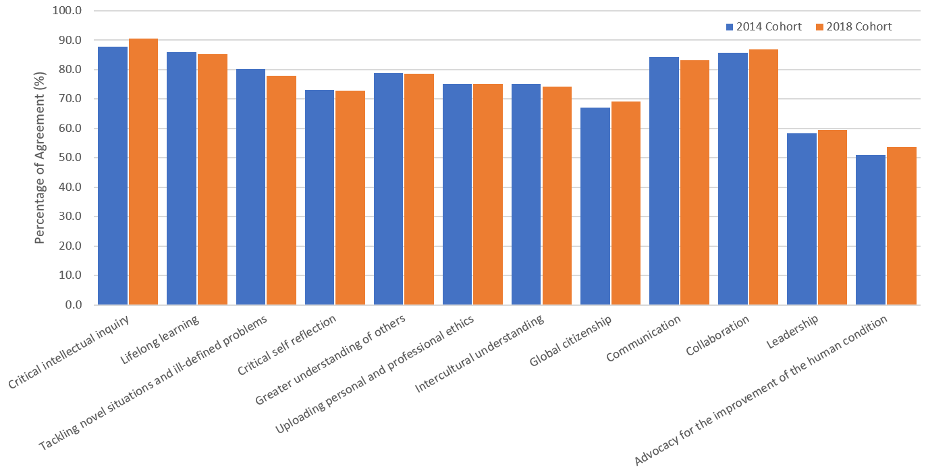
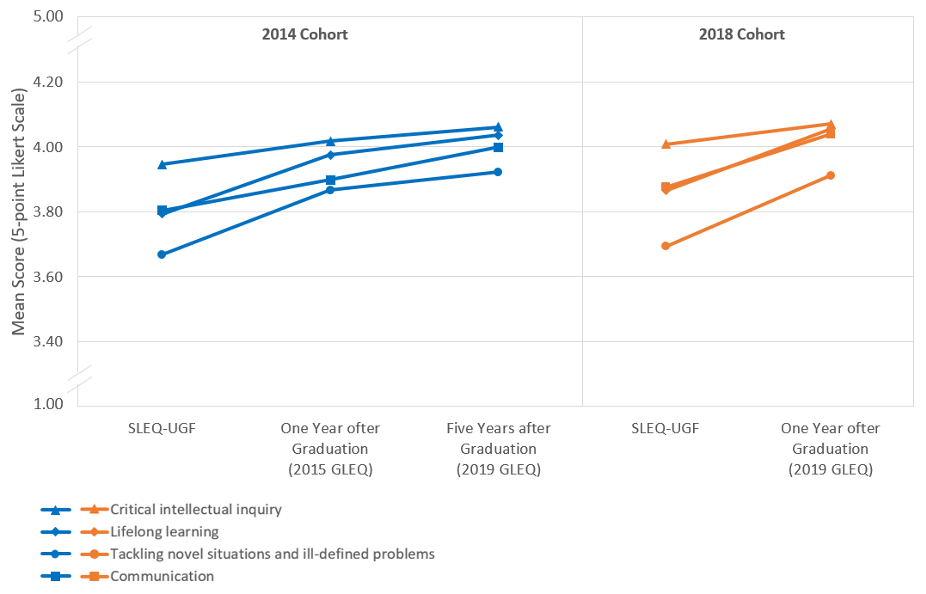
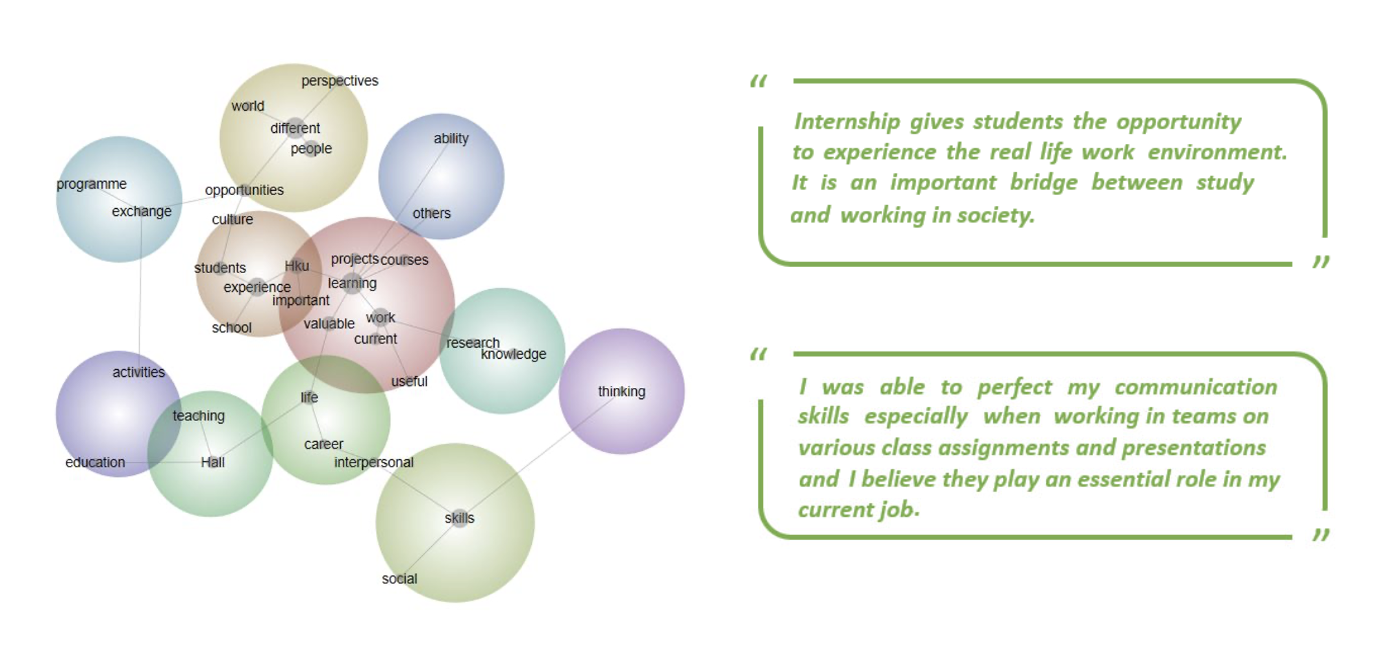
2017
Highlights
- More than half of the respondents agreed or strongly agreed on all of the questions pertaining to HKU’s Educational Aims. The three highest percentages emerged on the scales of Critical Intellectual Inquiry, Lifelong Learning and Collaboration (Figure 1).
- For questions on students’ overall learning experiences related to Internationalisation, Interdisciplinarity, Innovation and Impact (the University’s 3+1 Is Strategy), more than half of the respondents agreed or strongly agreed on all of the questions, with percentages ranging from 59% to 77% (Figure 1).
- Comparing to the final year at the University, graduates of both cohorts reported gains after graduation mainly on three scales: Tackling Novel Situations and Ill-defined Problems, Communication and Lifelong Learning. For the 2012 cohort, surveyed one year and then 5 years after graduation, the increasing trajectory on the Communication scale was sustained over time (Figure 2).
Detailed results at the institutional, Faculty and curriculum levels are available at the online Institutional Survey Reports System (ISRS), which enables Faculties to generate survey reports at various levels and make comparisons across years. All academic staff and administrative staff with access rights can directly access the System after logging on to the HKU Portal account (HKU Portal > Self Service > Teaching and Learning > Institutional Survey Reports > View Reports). Detailed instructions on using the System are available in the User Manual, downloadable here.
Faculties are welcome to contact Dr. Maggie Zhao at myzhao@hku.hk for support in interpreting and utilising survey data, and Ms. Yvonne Chan at chanyyw@hku.hk for technical support in using the System.
